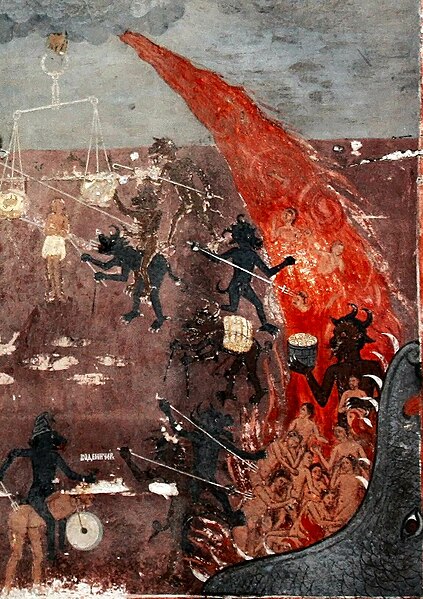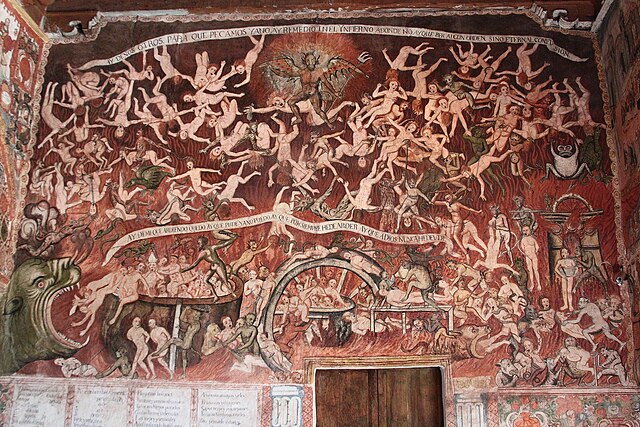Naraka is the realm of hell in Indian religions. According to some schools of Hinduism, Jainism and Buddhism, Naraka is a place of torment. The word Neraka in Indonesian and Malaysian has also been used to describe the Islamic concept of Hell.
Angkor Wat bas-relief depicts spirits of the dead being laid on fire in Naraka.
A large central panel portrays Yama the god of death (often referred to as Dharma) seated on a throne; to the left stands a demon. To the right of Yama sits Chitragupta, assigned with keeping detailed records of every human being and upon their death deciding how they are to be reincarnated, depending on their previous actions.
A mural from a temple in northern Thailand. The unclothed spirits of the dead are brought before Yama for judgement. In the background, Mālaya (พระมาลัย) watches from above as sinners are fried in a large oil cauldron.
In religion and folklore, hell is a location or state in the afterlife in which souls are subjected to punitive suffering, most often through torture, as punishment after death. Religions with a linear divine history often depict hells as eternal destinations, the biggest examples of which are Christianity and Islam, whereas religions with reincarnation usually depict a hell as an intermediary period between incarnations, as is the case in the Indian religions. Religions typically locate hell in another dimension or under Earth's surface. Other afterlife destinations include heaven, paradise, purgatory, limbo, and the underworld.
Medieval illustration of hell in the Hortus deliciarum manuscript of Herrad of Landsberg (about 1180)
Hell – detail from a fresco in the medieval church of St Nicholas in Raduil, Bulgaria
Preserved colonial wall paintings of 1802 depicting Hell, by Tadeo Escalante, inside the Church of San Juan Bautista in Huaro, Peru
In this ~1275 BC Book of the Dead scene the dead scribe Hunefer's heart is weighed on the scale of Maat against the feather of truth, by the canine-headed Anubis. The ibis-headed Thoth, scribe of the gods, records the result. If his heart is lighter than the feather, Hunefer is allowed to pass into the afterlife. If not, he is eaten by the crocodile-headed Ammit.







